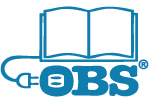This week’s Newsweek devoted its cover story to Kindle, a new product recently released from Amazon, a $400 e-reader to follow in the footsteps of similar devices such as Sony’s Reader Digital Book and the Rocketbook, promising clear readability thanks to sharp e-ink contrasts, interactive functionality similar to that found in the old Voyager Expanded Books, and, best of all, huge storage capacity and persistent wireless connectivity.
The “always on” aspect is exciting, for there is nothing more frustrating than traveling from hotspot to hotspot and having to pay for each connection. Based on our own airport bookstore purchases last year, we’d save money by paying $400 for the device and then $10 for each e-book title. But we’d have less on the bookshelves in the end, to share with families and friends. Doing all one’s e-info shopping through Amazon promises one-click ease and benefits, to be sure; it will be interesting to see how their portal approach will allow content from diverse sources to propagate through their commercial channel.
While this device represents one further step in freeing books from containers, it also hints at the dark side of the digital divide. On one hand, in the Newsweek article cited above, Google’s Dan Lansing notes: “Say you are trying to learn more about the Middle East, and you start reading a book, which claims that something happened in a particular event in Lebanon in ’81, where the author was using his view on what happened. But actually his view is not what [really] happened. …there are other people who have written about it who disagree with him, there are other perspectives”—and your e-book’s connectivity could provide instant access to those competing perspectives. On the other hand, objectivity is not always the goal: there is the case of Tiananmen Square, where Google apparently helped the Chinese government make sure that a Google search on this placename conducted from within China yields a quiet park rather than the scene of the bloody student revolt in Spring 1989.
Without a foundation in physical containers such as books, all is mutable, as the inhabitants of Orwell’s Animal Farmlearned when they watched their 7 Commandments written on the barn wall mutate from “all animals are equal” to “all animals are equal but some animals are more equal than others.”
